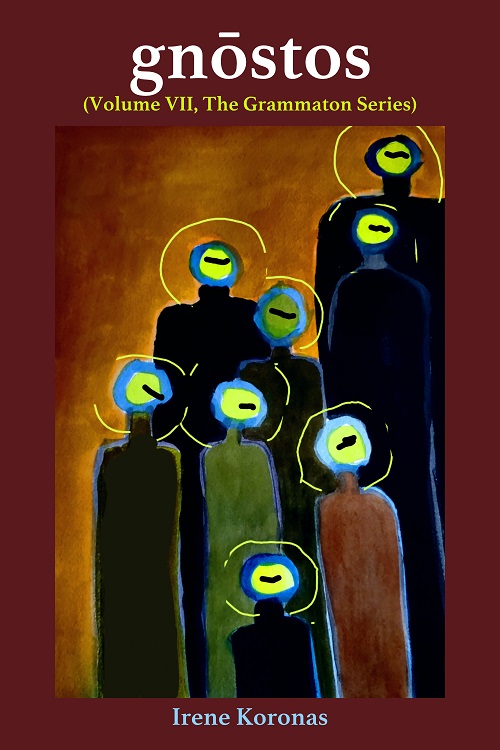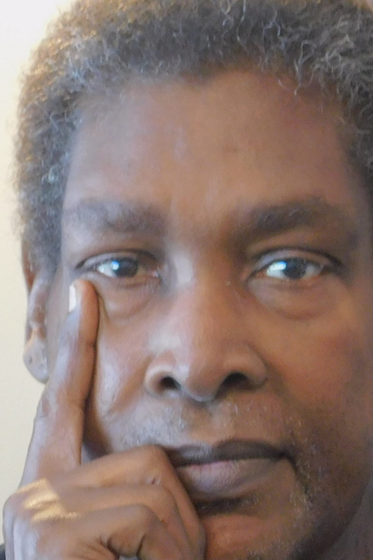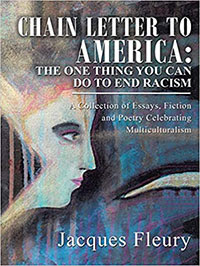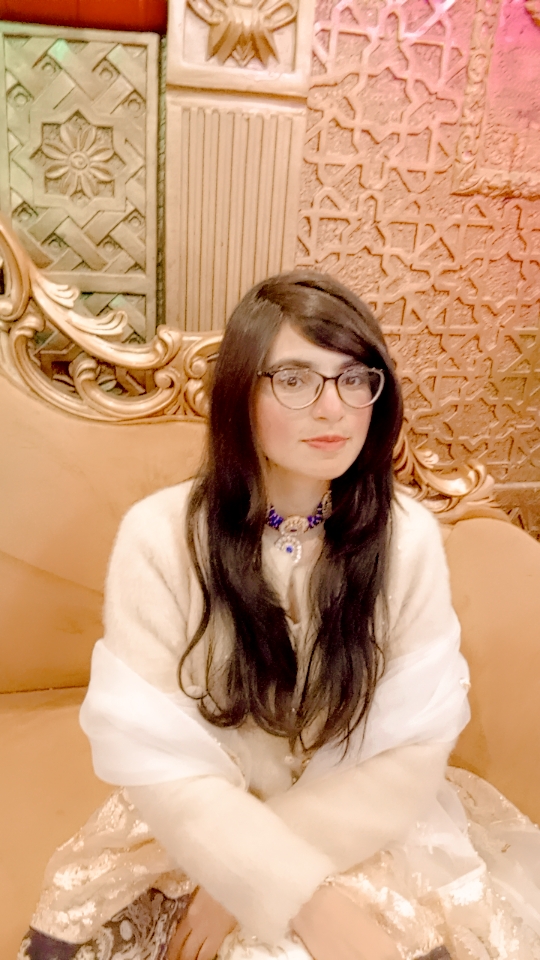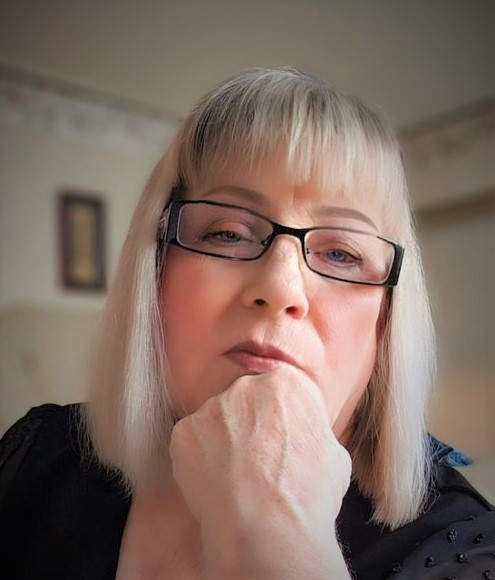The Haven
“If you must gain entry for yourself and your family, then we must learn news from the Terror. Our historian requires it”
Stepan pushed his cap back on his head and wiped his brow. He had spoken those words a dozen times a day, now, for so many years he wished to forget them.
The man standing at his table stammered, and then courageously –
“I would wish to forget it, too. Must we speak of it?”
Stepan – “We must always speak. We must always write. We must always record. All begins with the word according to most clerics, as they interpret most Holy works of the word.
A difficult truth, as they say in every Village –”
“Yes, yes,” the man said, wringing his hands. “A difficult truth is more beautiful than the easiest lie. I know. Well . . . they are now barricading my own Village. There is a siege upon it which my family escaped, I admit because of connections with members of the
councils that make decisions, regarding which people are allowed to go, or which are required to stay. As you can see, one of my sons is only 13, but he is thin, and we were able to avoid his recruitment into the army, and my other son is only 8. My wife works with the bards in our village, and the artisans. She runs one of the shrines to the
imagination, not one dedicated to the holy . . . I worked on behalf of the legal councils, so I was able to contact some friends, and seek permission to escape the Terror. I know it’s cowardly, but –”
Stepan cut him off, in a moment.
“It was brave. You risked humiliation for your loved ones and did so in order to avoid behaving wrongly. There is no wrong here on any level.”
The man was flummoxed. He paused, then asked,
“Does your Village employ Clerics at their ports?”
“No. We are all Clerics here. We all share in the clerical work.”
Stepan straightened his hat, as if to say, he meant labor. He said,
“Go on. Tell me more about what you think you know about the Terror. Facts please.”
“We have learned from our own historians and bards that members of other tribes from other Villages have made raids and killed children. This is why I used my friends to help us leave. Our Village was doing well, as well as one could. There was a short time
when we were not at war with any of the others, and our leaders were sending emissaries to negotiate for a sharing of the new resources that had been discovered.
But when we learned that members of other raiding parties were no longer leaving women and children alone, we made the decision to flee.”
Stepan waited. He put some tobacco into his pipe, a long handled pipe from the horn of a local grazing animal that his cousin had carved out for him. He thought about asking the question delicately, or directly, then asked, without worry: “Do you think that members of other tribes were doing this without members of your own tribe doing this?”
The man gave the answer Stepan was seeking.
“No. I believe that whatever one side in the Terror is doing, all of the sides are doing.”
“The historians should call it the Horror. The horror is in the deed done. The terror is the anticipation of it.”
Stepan paused, then nodded. This particular news of the Terror was sufficient, in Stepan’s judgment, to allow the man to pass the first test laid out for admission to his Village . . .
It had been a dark decade on the continent. Seven different villages, all separated by forested land, had been at war with one another over claims to the region, changing alliances, re-forming old alliances, without any one of them able to gain an edge or advantage over another. The terror – this was the name historians in at least three of the different villages had given to it – the terror had begun when certain resources, with certain properties, had been discovered, not so deeply in the earth as to go undetected.
The various metals and other natural elements to and from the earth included some metals, and some mysterious plant-like samples. The metals were far superior to what citizens of the many villages had worked with and used for shelter and tools. The elders, councils, executives, or other kinds of law-giving or law enforcing bodies,
depending on the particular village, were all concerned that one or another of the other villages would monopolize the new discoveries.
A historian in one particular village noted the irony of the Terror and its origins, in his ongoing records and logs: the plant- like substances induced an almost euphoric, nearly hallucinatory creative drive and love for peace and humanity, when ingested either into the lungs, or the digestive tracts.
In stark contrast, the metals were coveted simply because they were so superior to the kinds of materials used by the engineers and military units of different villages, that the metals then in place would not hold up in defense of any army utilizing the new resource.
At the outset, assorted members of the educational, artistic, or priestly classes of different villages petitioned their governments for expeditions in search of the almost-magic plant that had been found. Artisans, painters, inventors, clerics, all sought for the new plant, in the hopes of uncovering some new metaphysical secret to the
universe around them. Almost simultaneously, however, leaders of guards, sentries, armies – the knights and soldiers and their generals – petitioned these same governments for finances and backing, to embark on expeditions in search of the new metals.
The Terror had begun, but no one was quite certain how it had begun. It depended on which Village Historian one consulted. The historian for the tribe of one village attributed it to another, and that tribe’s village historian blamed yet a third village for beginning the Terror. Different accounts bore some similarities, and the generally
accepted explanation was, simply, that the armed explorers and pioneers from one village, deep in the forest in search of the superior metal, had happened across a search party of clerics seeking the plant, now labelled “divine” by most seekers. The armed party of soldiers and knights mistook the clerics and artists for another armed
party from another village, and no one was spared.
Killing another Village’s cleric was a capital offense. It invariably led to extradition of the offender, without protest or further challenge and, even in past times of war, this code was generally accepted. But killing another village’s artist, or poet, or bard – whose
jobs included enlightenment, and whose unique skills included a recognition of the shortness of life – this was unimaginable, a horror of the first rank.
And so began the Terror.
And this meant – as already noted – for at least one perceptive historian of at least one village – a most greatly ironic moment in the history of the different tribes and their villages. Indeed, it meant the most ironic turn of history ever . . .
For what could be more ironic than to immerse thousands of citizens, from hundreds of families, from seven different tribes, seven different villages, into a long, protracted, and bloody conflagration, all over the bodies of a few men who would have been among the first to preach against such a result, who would have been the first to admit their own mortality, their own recognition of the shortness of their own lives?
But one Village had escaped the conflict, separated from it all by leagues of ocean waters, and while the other villages raged on one against another, that one against a third, this Village simply grew, and grew – its population doubling, then tripling, with the scores of refugees who made their ways across the choppy seas by any means necessary, losing hundreds of loved ones and family members in the terrible, sea-borne trek.
And the historian that had noted the irony, so perceptively?
Well, of course, it was the Historian from Stepan’s Village. That Historian learned more about the Terror than any of the other Historians from any of the other Villages combined. Because he accepted all of the participants, and their speeches about it,
through agents like Stepan, he could hear all sides. This was Village policy.
Stepan was a customs agent for this isolated island village. In the past, before the Terror, he manned the port and he received goods. But goods stopped coming. The Terror began. Then good came, fleeing as it were what it was not. And it became Stepan’s job to receive, to document, and to welcome, the many refugees who sought a new life of peace, each of them seeking a new beginning at his assigned port. He asked the man some more questions, now that the man, and his family, had passed the first qualification for entry.
But the refugee first asked Stepan so many questions that he could not do his job.
“Why does your Village not take part in the Terror?” he asked first.
“It is across the seas. That is a long and difficult way to go just to die.”
“Why do you not send emissaries and explorers in search of the metals and the new divine plant?” the man asked.
“We have our own metals, and we do not need the new one. We have the ocean for defense, and it would swallow up any ship made of any metal heavy enough to crush our own.
And we have our own plants, our own elixirs, our own . . . sources of inspiration . . .”
“But what about your inspiration, what do your holy men and bards rely upon?”
“The word.”
“And your elders choose not to engulf you in the Terror. They must be wise.”
“As I said, it is a long way to go just to die.”
“Tell me then about the word.”
“We all have these words, we all have language.”
“What makes your understanding of it so unique?”
“Your words. This is why I am here. This is what I do. Here are your papers. These will admit you. You are to write down every word you know, and every word that you bring . . .”
The refugee was puzzled, but crying. Tears of joy.
“Our language is hungry. It is like your armies, or your expeditions, and the parties that go from your Village hungering for more. Our words need more. More words. You are to write down every word in your language, that you know. Henceforth, it becomes part
of our own . . .”
